The IFRC Disaster Law: assists National Red Cross/Red Crescent Societiesof the region to support their authorities in developing and applying state-of-the-art disaster-related legislation, policies and procedures. We do this to make communities safer,
to ensure timely and effective humanitarian relief, and to improve the protection of the most vulnerable when faced with crisis.
We operate on an international mandate given by all state parties to the Geneva Conventions, providing technical advice based on over a dozen years of global research and consultations. By harnessing their unique auxiliary role, National Societies working with us have successfully strengthened new disaster laws and policies since 2007.
The Programme’s main objectives are:
• Strengthening Disaster Law in the region.
• Strengthening the auxiliary role of the National Societies and build
their capacities to efficiently advocate for legislative reforms on disaster
prevention, preparedness, response and recovery.
Disaster Law and Legislative Advocacy constitute the two main pillars of IFRC Disaster Law:
Disaster Law: is a general term that encompasses legal, regulatory and institutional frameworks related to cohesive disaster and crisis risk management which encompasses the following key thematic areas:
• Disaster Risk Reduction (DRR)
• Disaster Preparedness
• Disaster National Response and International Assistance (“IDRL”).
• Post-disaster Recovery
Legislative advocacy: : refers to the actions taken by the National Societies, with the IFRC support, in their capacity of auxiliaries to their respective public authorities in the humanitarian field, to influence, at local, national, and international levels, decisions and policies that affect the most vulnerable.
• For more on IFRC Disaster Law click here.
•For available Online Disaster Law Trainings click here.
Guide to Strengthening the Auxiliary Role through Law and Policy
The IFRC Disaster Law launched the Guide to Strengthening the Auxiliary Role through Law and Policy. It provides practical examples and best practices from around the world to support NS in their advocacy efforts with authorities. It will soon be available in French, Arabic, Spanish, Russian. There is also a new online course on the Auxiliary Role to complement the new Guide. It is available on the IFRC Learning Platform. It is available in English at the moment and it will be available in other languages in the upcoming weeks.
Using Law and Policy to Reduce Risk Enhance Coherence and Protect People
The Disaster Law Programme is pleased to invite you to a session, “Using Law and Policy to Reduce Risk , Enhance Coherence and Protect People”, at the upcoming Climate:RED Summit . The session will be a discussion on how law and policy frameworks can ensure a more coherent approach to reducing disaster risk and adapting to climate change, as well as how National Societies could engage with governments and partners to ensure inclusivity in the law. During this session, preliminary findings of the on-going global study being undertaken by the programme on policy coherence between CCA and DRR, will also be showcased with specific focus on addressing vulnerabilities through CCA-DRR laws and policies.
National Societies and the RCRC Movement at large continues to offer critical support to national and international agencies in light of the Covid-19 Pandemic. Therefore to enable NSs and RCRC Movement personnel to fulfil their humanitarian mandate and support implementation of the national Covid-19 Plan of Action, it is crucial to advocate for specific legal facilities to ensure the unhindered movement of medical relief and humanitarian assistance teams and items into and out of their border in the coming weeks or months (in response to the current pandemic and other upcoming disasters). The DLP has developed an Advocacy Package that includes key messages, template letters and flow charts for the NS to use in engaging the relevant governmental agencies. Through use of this package, NS should be able to advocate to their governments grant any special legal recognition, exemptions or exceptionalities that are necessary for the RCRC, as well as have them included in emergency plans, decrees, proclamations and regulations.
The Disaster Law Programme has compiled and assessed the Covid-19 measures adopted in 48 countries in sub-Saharan Africa to get a regional overview and understanding of their impact on the operational capacities of the Red Cross/Red Crescent Movement Actors in domestic and regional contexts.
Last year the DLP completed Phase 1 of the auxiliary role mapping by mapping a total of 10 countries across the region. Following this, the DLP is currently undertaking two mapping exercises in the Southern African region: an auxiliary role mapping of Southern African National Societies and an IDRL mapping. The purpose of the auxiliary role mapping exercise is to clearly articulate the auxiliary role of African National Societies by identifying, analysing and consolidating the different roles and responsibilities given to respective National Societies through national legislation and policies as well as bilateral/multilateral agreements. Additionally, the DLP will also carry out this mapping in the remaining countries in Sahel, East, West, Central African Countries with an aim of having all 49 countries in sub-Saharan Africa mapped by the end of 2020. Further the programme is also carrying out an IDRL mapping of countries within Africa with a purpose of identifying and analysing the legal and policy arrangements for international disaster response across Africa. For More information on the Auxiliary role & IDRL mapping in Southern Africa please contact Jeanique Serradinho Jeanique.Serradinho@ifrc.org
The Report offers a global discourse on the state of child protection in international and national law relating to Disasters. It highlights a case study from Uganda supported by the DLP in 2019 and also offers key considerations for law and policy makers to ensure child protection needs in disasters are legislated and actioned on.
This report studies the facilitation and regulation of international humanitarian assistance at the time of disasters as governed by the legal and Institutional framework in place in Sudan. The study is informed by the “Guidelines for the domestic faci…
This study was commissioned by the IFRC as part of the global initiative on “Effective law and policy for addressing child protection in disaster risk management” and implemented by Uganda Red Cross Society. The overall goal for the study was to assess …
Disasters caused by natural and technological hazards are a commonplace phenomenon causing extensive negative impacts as exemplified by the World Disasters Report elaborated by the International Federation of Red Cross and Red Crescent Societies (IFRC) …
The Disaster Law organized a regional workshop to bring together National Societies and their Governments from across Africa, Latin America and the Caribbean to discuss ways to strengthen domestic legislation and policy to ensure an effective climate smart approach to disasters. This included discussions around integrating protection and inclusion of vulnerable groups into relevant disaster laws and policies in order to ensure that no one is left behind in disaster risk management activities…
The Disaster Law regional workshop aimed at providing an intensive training to African, Latin America and Caribbean National Societies on the key thematic areas, tools and resources developed by IFRC to strengthen national legal framework for effective disaster risk management…
For additional Disaster Law Resources, please see the RCRC toolbox
Disaster Law
Disaster Law & Legislative Advocacy Regional Workshop
Towards Climate Smart Frameworks Workshop
Click top left button on the map
The first layer of this map sets out past and present disaster law projects and/or studies undertaken by the IFRC and National Societies.
The second layer shows laws or rules that have been adopted and which draw on recommendations from National Societies.
The third layer shows countries where new laws or rules drawing on those recommendations are currently pending.

The first layer of this map sets out past and present disaster law projects and/or studies undertaken by the IFRC and National Societies.
The second layer shows laws or rules that have been adopted and which draw on recommendations from National Societies.
The third layer shows countries where new laws or rules drawing on those recommendations are currently pending.
9th September 2020 : Session at the Climate:RED Summit - “Using Law and Policy to Reduce Risk , Enhance Coherence and Protect People”
30th June 2020 : Launch of the Report ‘We Need to Do Better: Policy Brief for Enhancing Laws and Regulations to Protect Children in Disasters’.
18th June 2020 : Webinar with Central African National Societies and Niger on the DLP Advocacy Package for Covid-19.
14th - 15th December 2019:Regional Workshop: Towards Climate Smart Policy Frameworks that leave no one behind, Abuja, Nigeria.
9th - 12th December 2019: 33rd International Conference of Red Cross And Red Crescent Societies, Geneva, Switzerland here.
11th - 13th November 2019:Regional Disaster Law and Legislative Advocacy Workshop, Abuja, Nigeria.
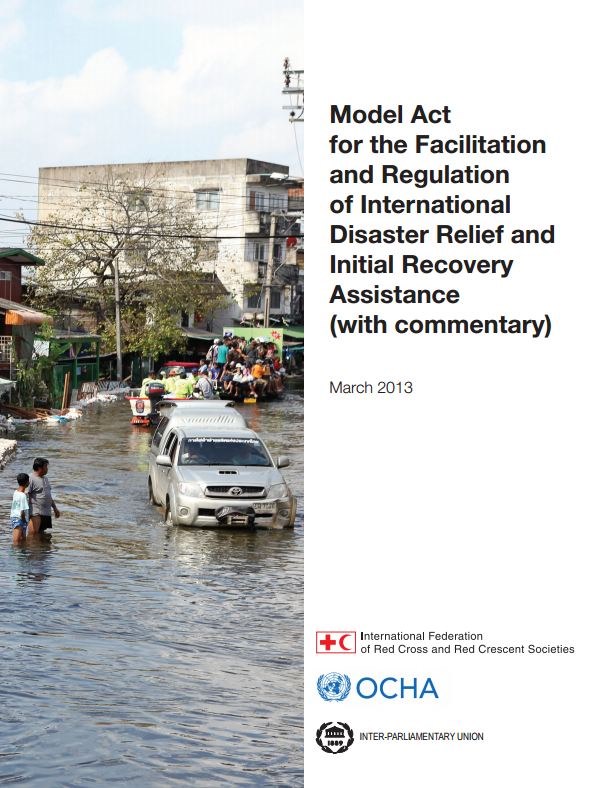
The Model Act for the Facilitation and Regulation of International Disaster Relief and Initial Recovery Assistance
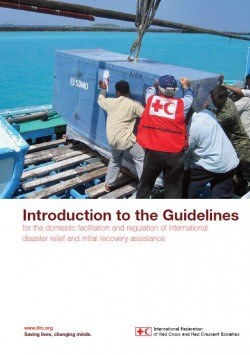
Introduction to the Guidelines for the domestic facilitation and regulation of international disaster relief and initial recovery assistance(IDRL Guidelines)
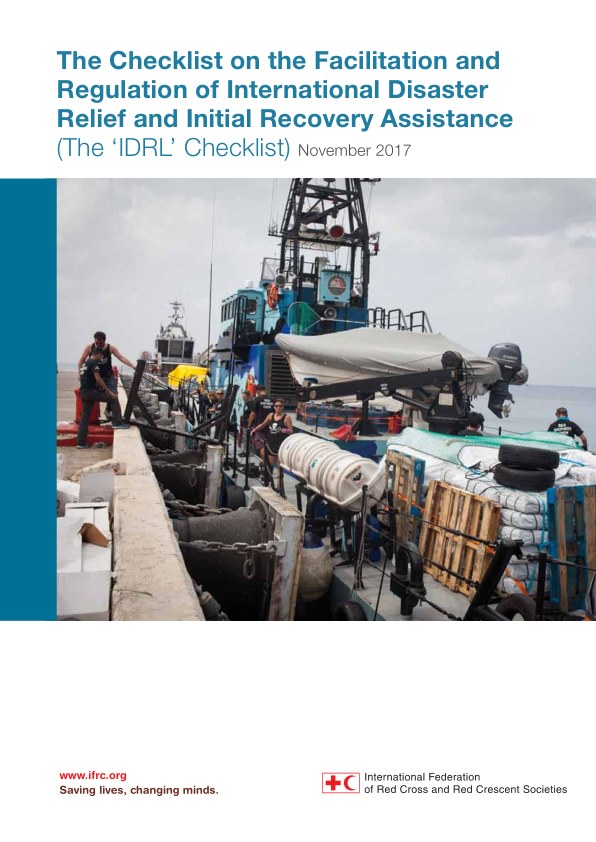
The Checklist on Facilitation and Regulation of International Disaster Relief and Initial Recovery Assistance(The IDRL Checklist)
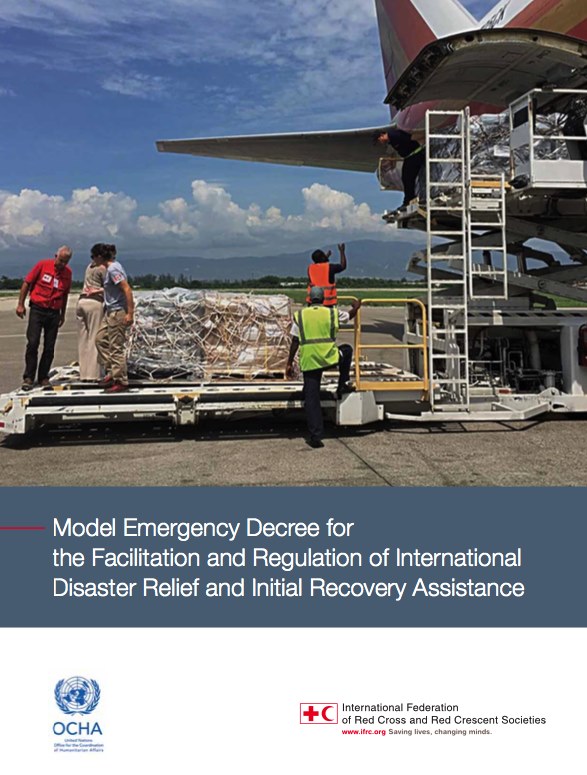
Model Emergency Decree for the Facilitation and Regulation of International Disaster Relief and Initial Recovery Assistance
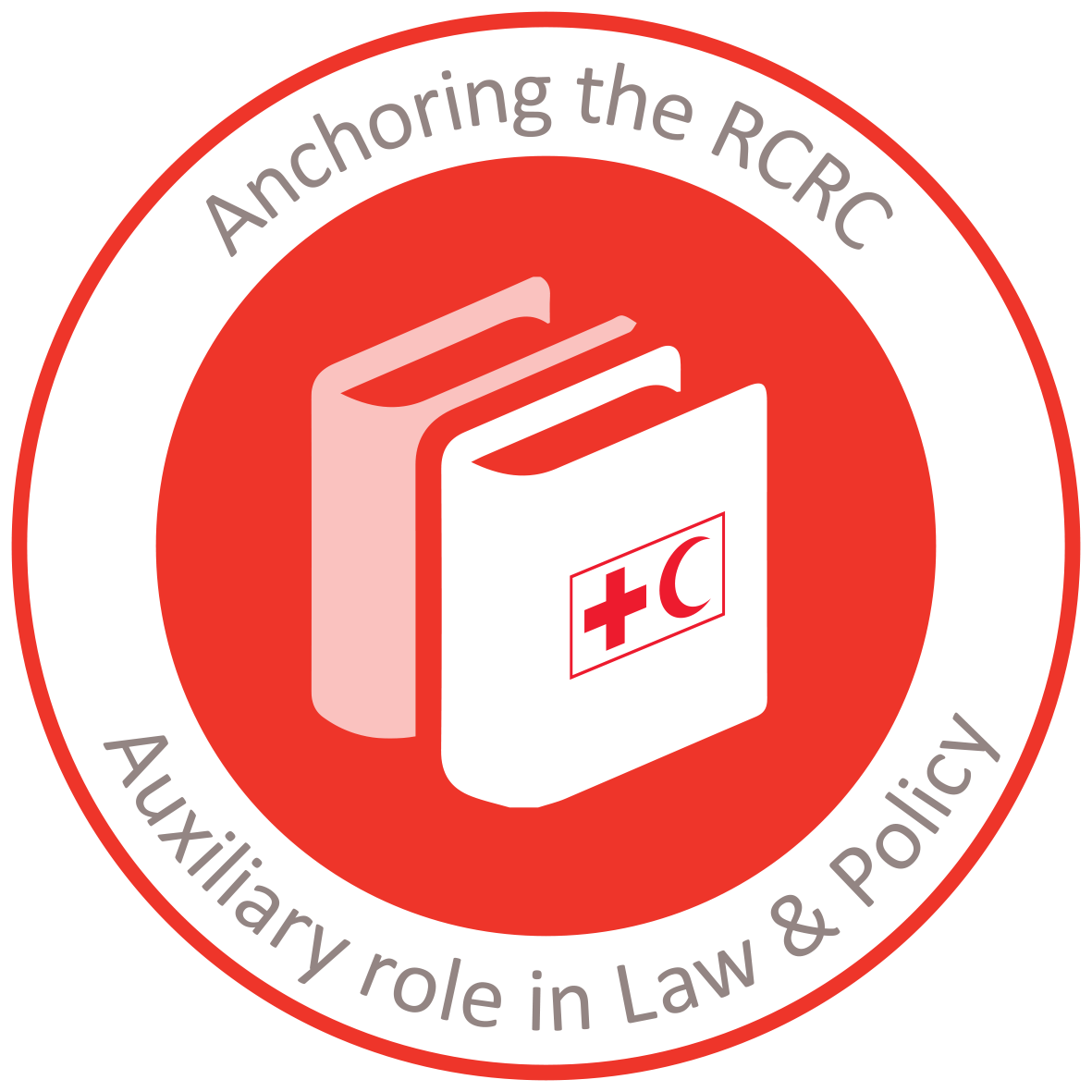
Recognizing the critical role of National Societies, as auxiliaries to their public authorities in the humanitarian field with a unique community outreach, to ensure community voices and engagement with national level policy development and planning processes on key humanitarian issues such as: disaster management, migration, health, among others
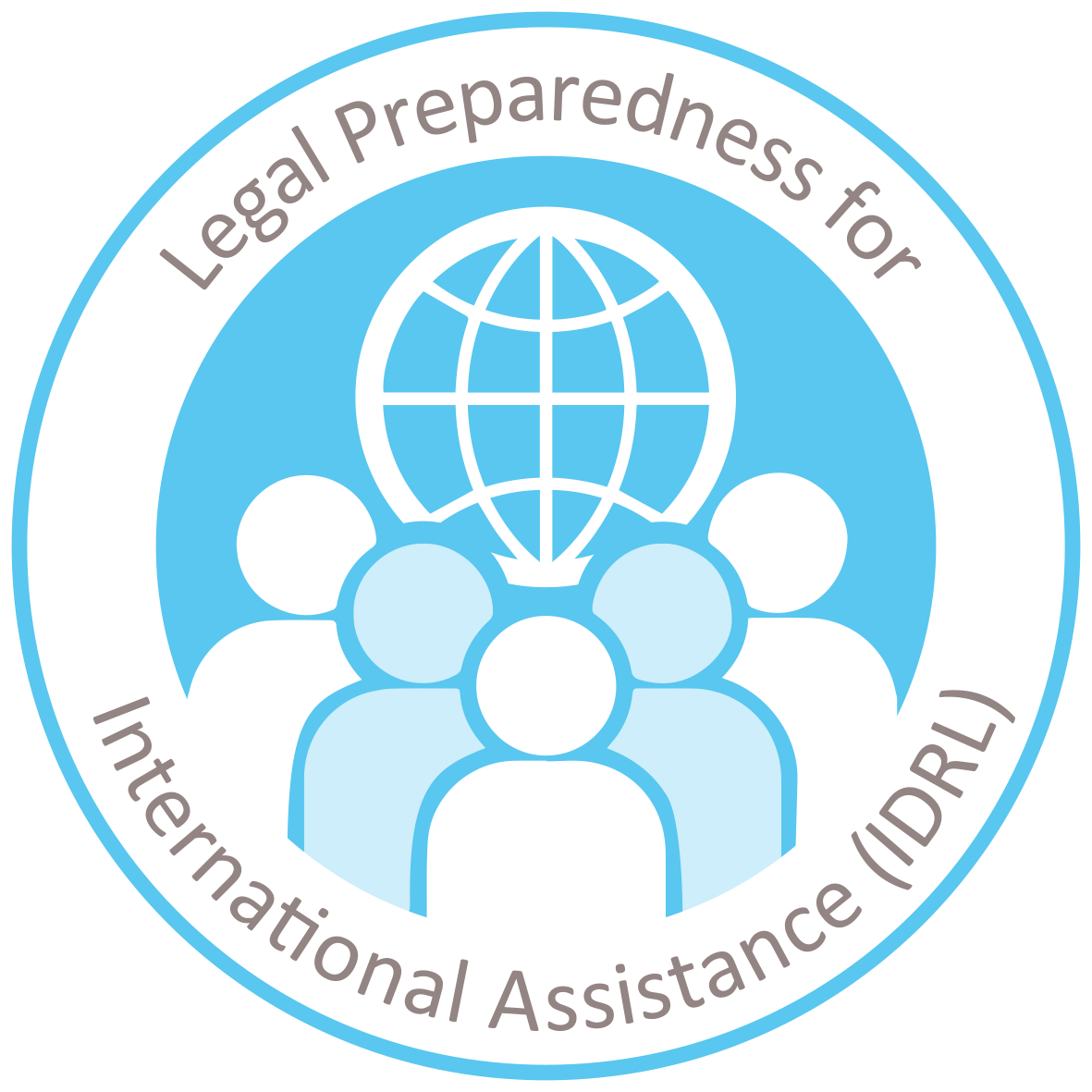
Procedures for international disaster relief that put domestic authorities in the driver’s seat, reduce barriers, costs and quality problems, and uphold humanitarian principles
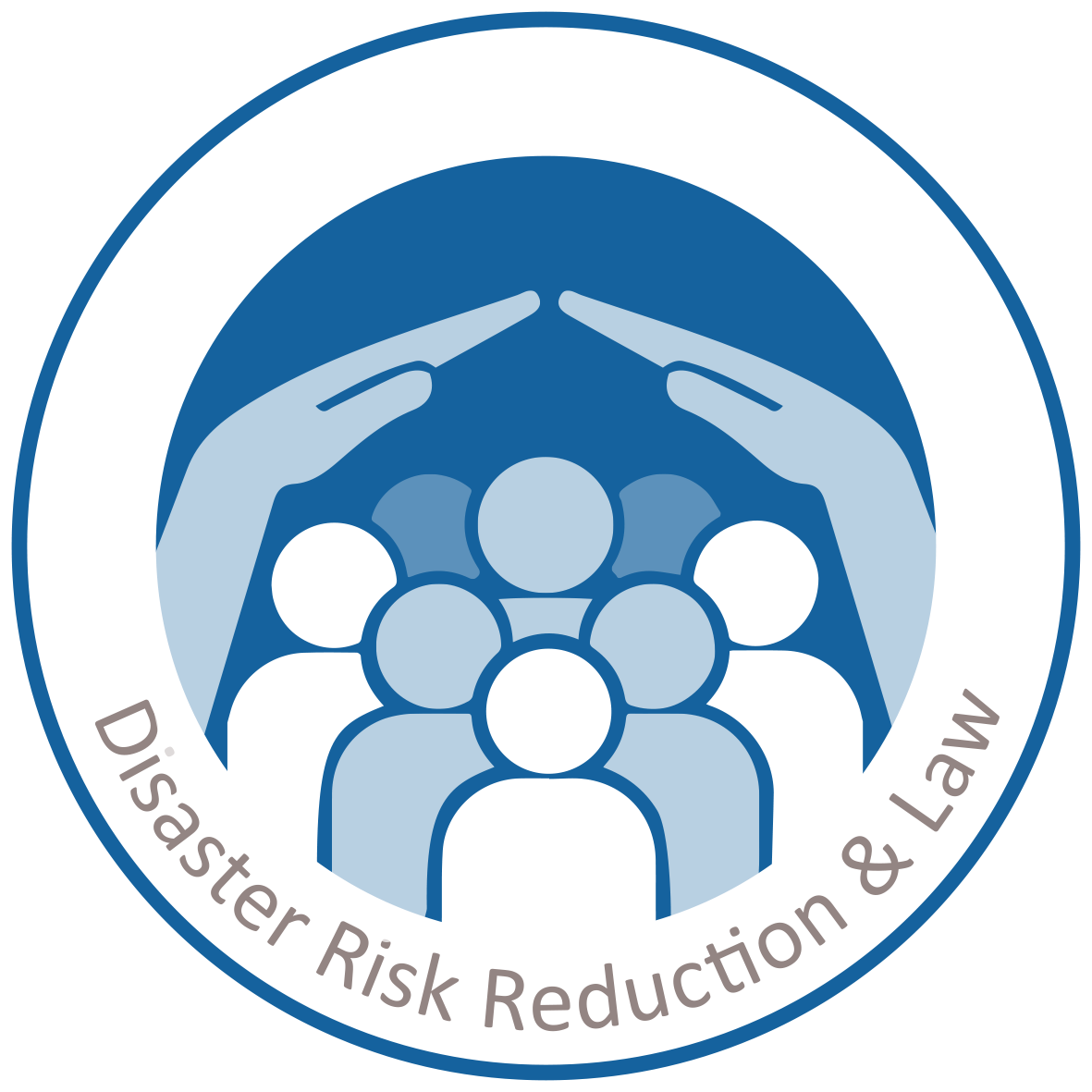
Modern legal frameworks that have integrated disaster risk reduction and climate change adaptation into disaster risk management and sectoral laws and policies, in line with key international and regional commitment.Online Course : Law and Disaster Risk Reduction
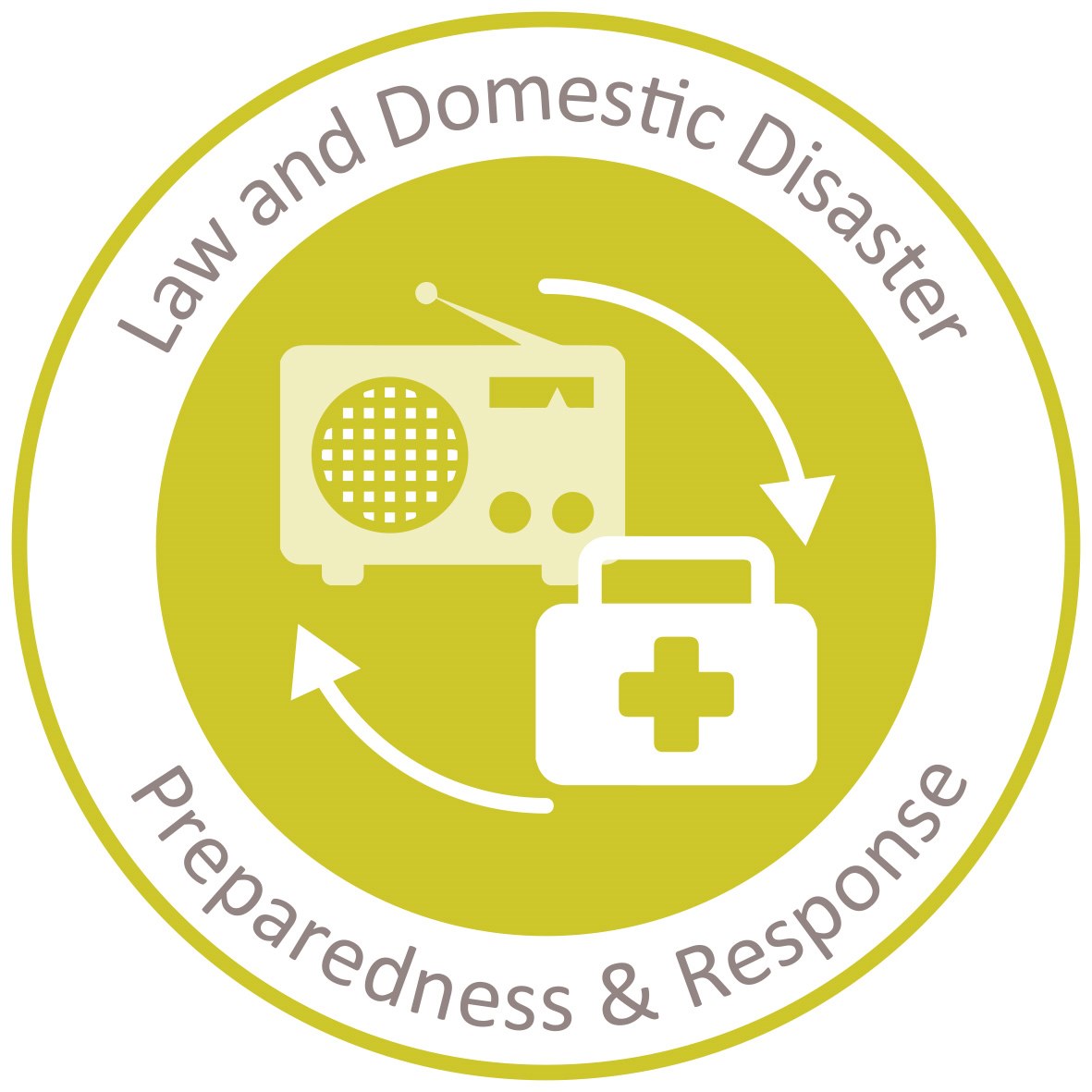
Integrated legal frameworks for disaster risk management that adequately address domestic preparedness and response, including institutional and procedural arrangements, gender and protection issues, as well as planned approaches to regulatory issues in post-disaster shelter
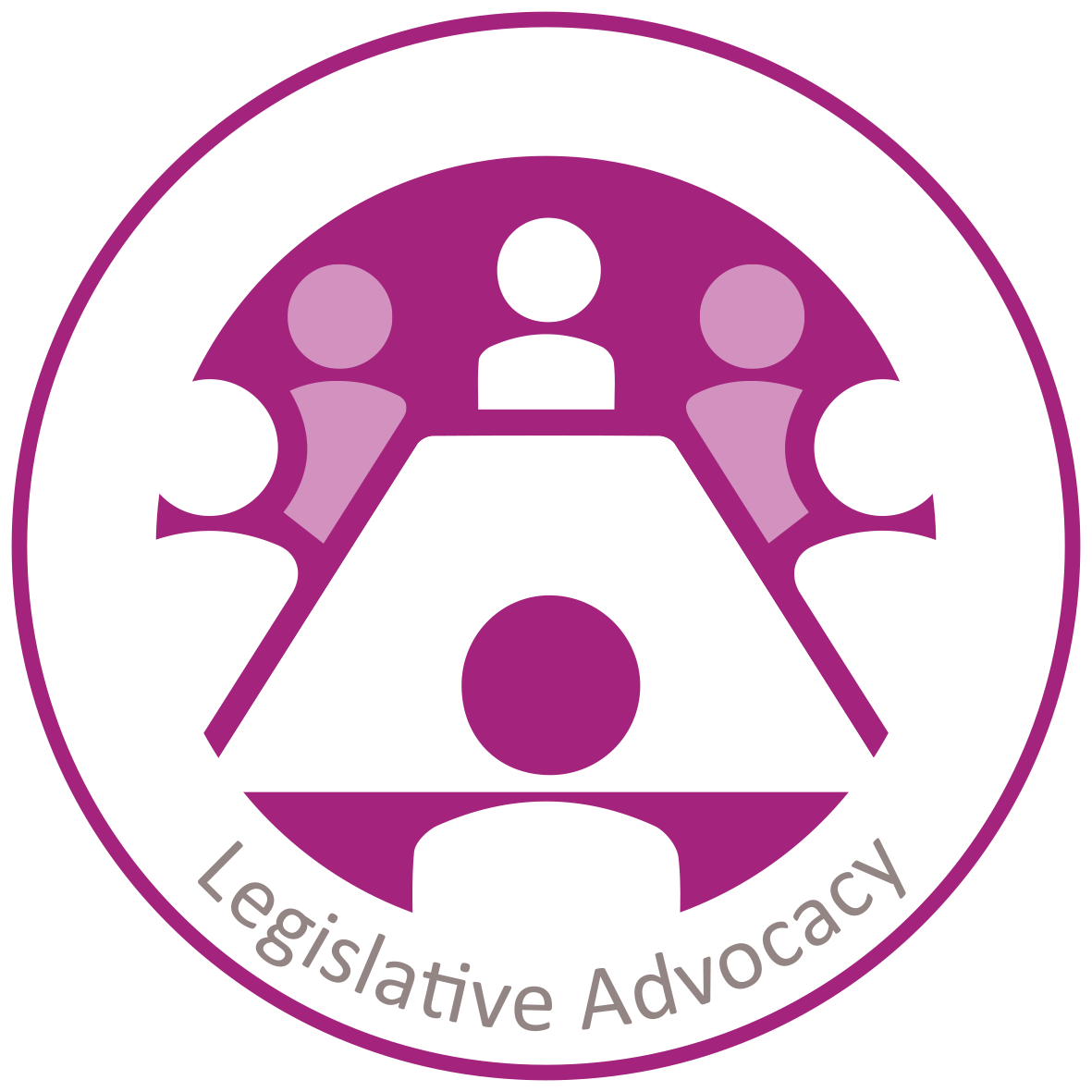
Influence the development, adoption and implementation of law and policy connected to IFRC and National Societies' knowledge,experience and mission, in order to create positive social and institutional changes
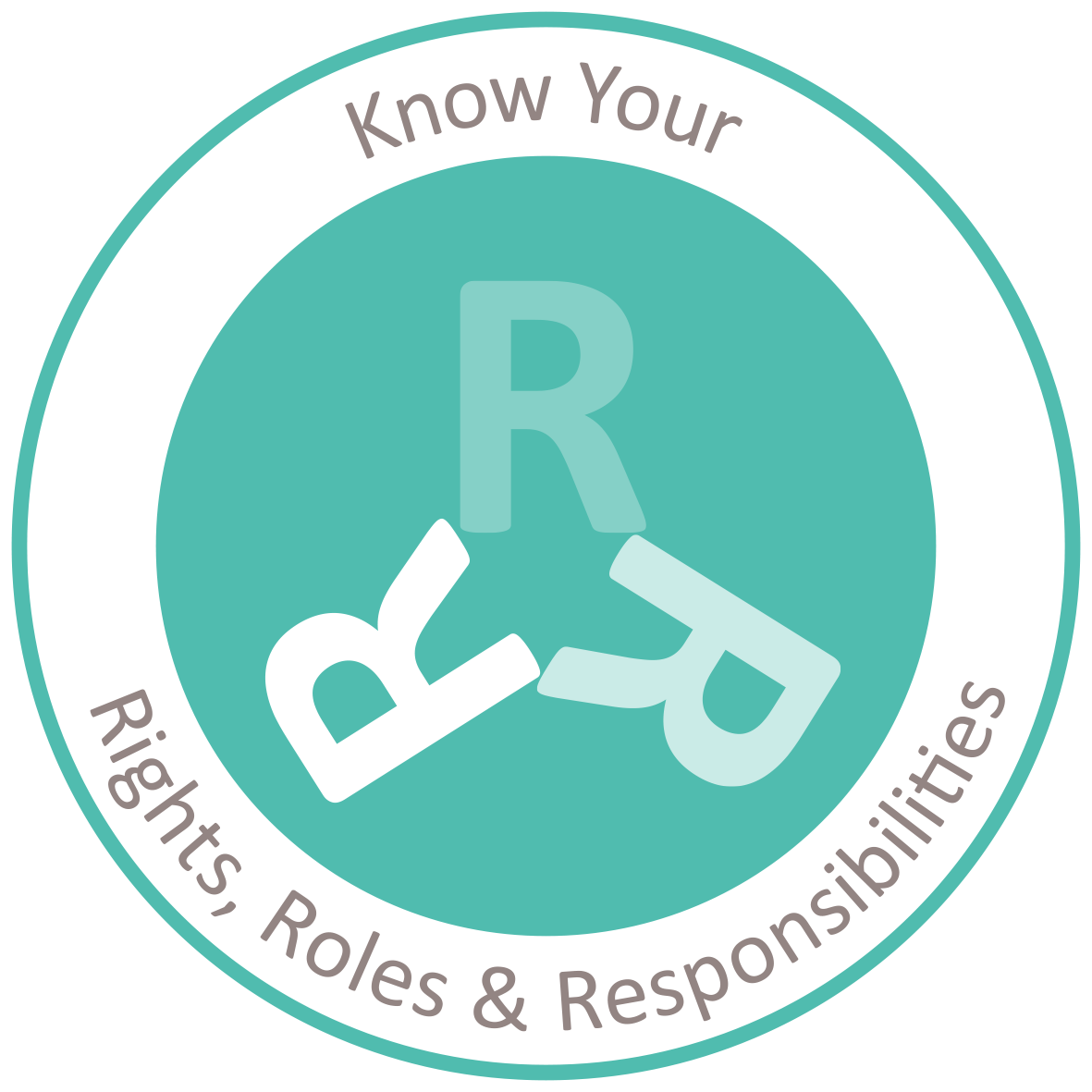
Strengthen public awareness and communities’ level of understanding on rights, roles and responsibilities under disaster-related legislation,policies and procedures to increase their resilience to disasters
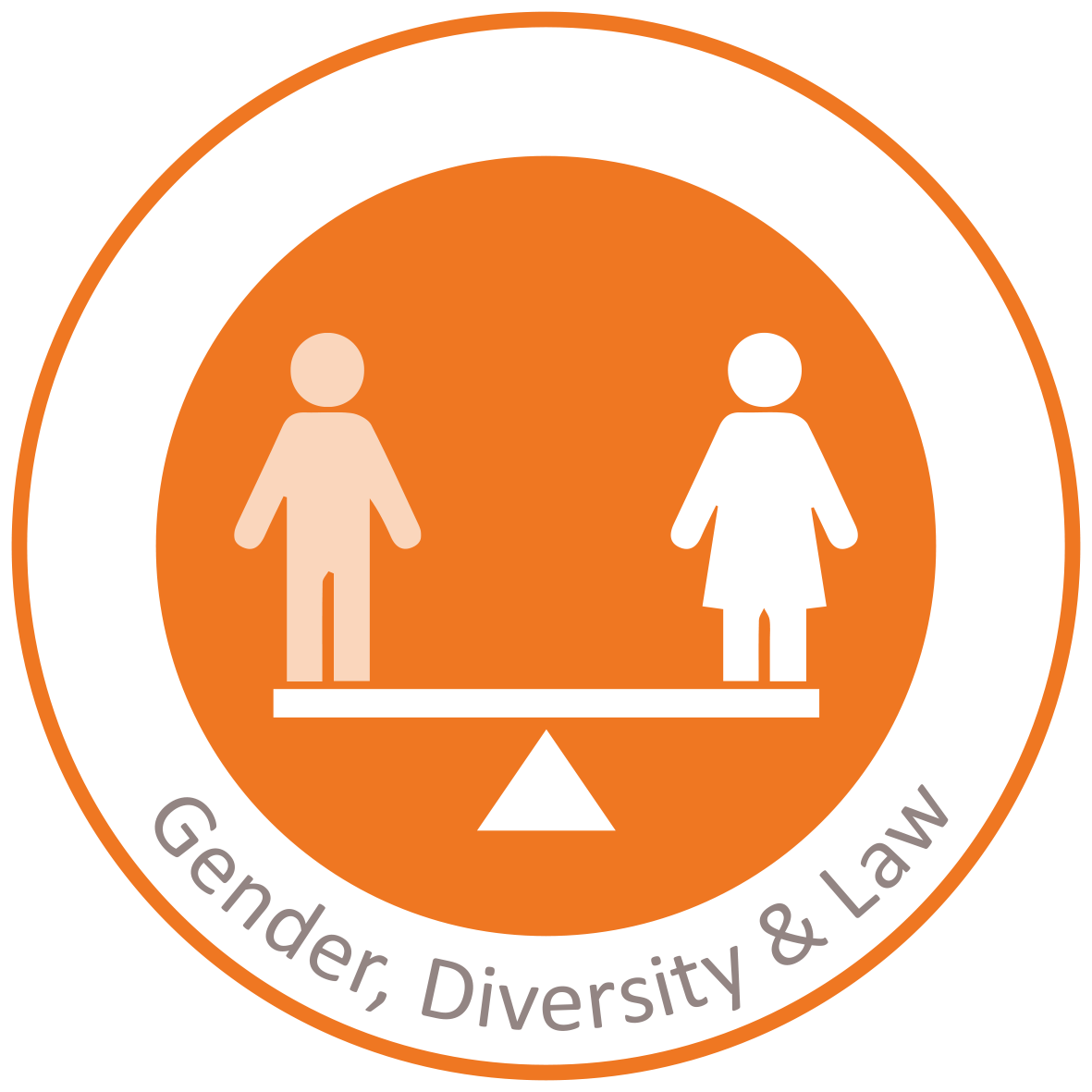
Inclusion of gender, diversity and protection issues; to ensure that dignity, access, participation and safety for all is adequately provided for in domestic legislation, policies and procedure

Contextual, well planned approaches to regulatory issues in post-disaster, addressing the complex legal issues that may arise in the aftermath of a disaster with regard to security of tenure and housing, land and property rights